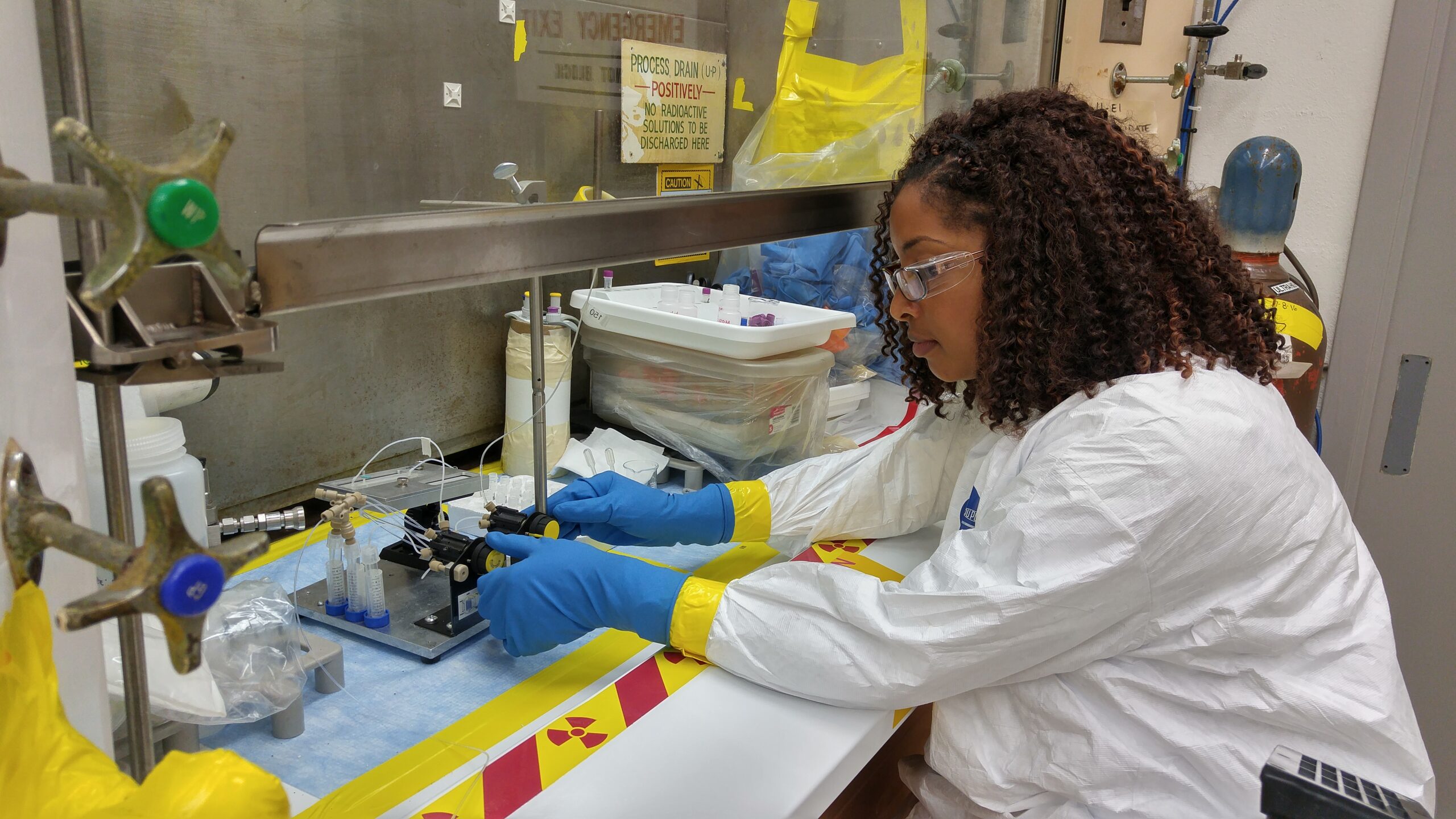NASHVILLE, Tenn. (TSU News Service) – Tennessee State University graduate Clarice Phelps’s interest in chemistry began with mixing concoctions in the kitchen of her Nashville home at an early age. However, it wasn’t until her 10th-grade year at Martin Luther King Jr. Magnet High School that she became captivated by science and developed a passion for chemistry. This passion laid the groundwork for her extraordinary journey of becoming the first Black woman to contribute to the discovery of an element on the periodic table. Beginning as a technician, she worked on purifying berkelium (BK), which was used to confirm element 117, now known as Tennessine. Tennessine is a chemical element with the symbol “Ts” on the periodic table and is classified as a halogen.
“Taking a seat at the periodic table didn’t happen overnight, it was actually a 20-year journey” reflected the TSU grad.
After earning her chemistry degree from TSU, Phelps later obtained a Master’s in Nuclear and Radiation Engineering from UT Austin. Her path led her to the Navy for four years, where she applied her chemistry skills to radioactive materials, a pivotal role for her in the scientific community.
In 2009, Phelps joined the Oak Ridge National Laboratory in Oak Ridge, Tennessee, following her stint in the Navy. Two years later she conducted the purification work, a critical step in the discovery process, she said. Phelps and other lab members isolated the purified chemicals, shipped them to Germany and Russia, where they were used as target material to produce atomic number 117.
In 2016, she received the official confirmation that Tennessine was part of the periodic table. However, it wasn’t until 2019 that she learned she was the first Black woman involved in discovering an element, recognized by the International Union of Pure and Applied Chemistry (IUPAC).
“Disbelief, shock, and disbelief again,” is how Phelps responded to recognition. “I had to Google it, and I still was in disbelief. However, I thought about me – as a little girl, desperately looking for someone like me in science who was an inspiration, and it changed my perspective.”
Twenty-five percent of African American graduates with STEM degrees come from HBCUs, according to the United Negro College Fund.
Phelps said her higher education journey beginning at TSU was very impactful for her academic, professional, and personal career. “TSU was instrumental in establishing and building upon the confidence that I call upon to take up space where no space was made for me,” Phelps said. “I have found that by applying my knowledge, showing that I can do the work and serving my community by sharing in that knowledge is how I actively live out ‘Think. Work. Serve.'”
TSU chemistry professor Dr. Cosmas Okoro was Phelps’ assistant professor and advisor in 2000 and spoke highly of her both as a student then and as a chemist now. “She is very persistent, and she wasn’t afraid to ask questions,” Okoro said. “I am very proud of her accomplishments and this honor.” Dr. Okoro said Phelps is active in the chemistry community at her alma mater, as she was a keynote speaker for several virtual chemistry classes throughout the years.
Phelps anticipates that her groundbreaking discovery will impact the scientific community, especially in her field. “It will change the small-yet-growing community of African American scientists and other scientists from marginalized communities,” she said. “Being able to see something of themselves, to feel the common struggles that I share in this journey, to know the common invisibility of our impact on the scientific community, will be significant.”
Reflecting on her career challenges as a Black woman, Phelps noted that there were many challenges. “The most significant challenge is being seen, heard, supported, and respected. It has been my experience that you are relatively invisible in the scientific community if you are a Black woman.”
She added that many times throughout her journey she felt small or even dismissed. “But to be in this position now just confirms what I have always known about myself – that greatness is my destiny.”
Phelps said this opportunity is a once in a lifetime as she is leaving a legacy behind.
“One that will surpass my current existence,” she said. “It is healing in a way as well because I feel that I have become what I was looking for all those years ago.”
Phelps emphasized the importance of exposing Black children to STEM careers, stating, “Exposing children to STEM at an early age allows them to naturally develop an inclination towards it.”
Phelps is currently working on her doctorate in Nuclear Engineering and hopes her work will serve as the catalyst for more conversations focused on minority STEM involvement, diversity in science, and addressing biases in the scientific community. She aims to make science a relatable and appealing career opportunity for historically disenfranchised communities, she said.
Phelps believes her story serves as a testament to breaking barriers, leaving a lasting legacy, and inspiring the next generation of Black scientists.

